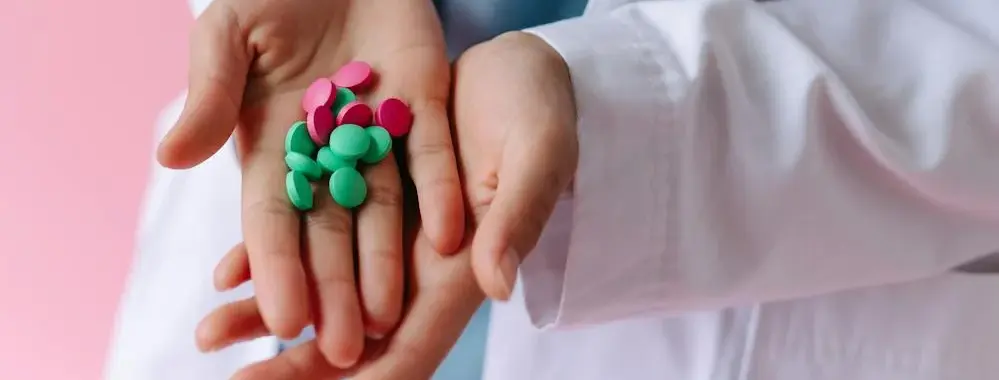Medication-assisted treatment (MAT) has emerged as one of the most effective approaches for treating substance use disorders, particularly those related to opioids and alcohol. By integrating FDA-approved medications with behavioral therapies, MAT not only helps reduce cravings and withdrawal symptoms but also supports sustained recovery.
In this article, we’ll explore various medication-assisted treatment examples, highlight the phases of MAT, and delve into how it improves overall well-being. Whether you’re seeking more information for yourself or a loved one, this guide provides a comprehensive look at the benefits and components of MAT, helping you understand why it’s often considered the gold standard in addiction recovery.
Examples of Medications Used in MAT
Medication-assisted treatment examples include several FDA-approved medications designed to manage withdrawal symptoms, reduce cravings, and support long-term recovery from substance use disorders.
Medications for Opioid Use Disorder (OUD)
- Methadone: This long-acting, full opioid agonist attaches to the same brain receptors as opioids like heroin but without the intense highs and lows. Methadone helps manage cravings, diminishes euphoric effects, and stabilizes individuals in recovery.
- Buprenorphine (e.g., Suboxone, Subutex, Sublocade): As a partial opioid agonist, buprenorphine reduces cravings and withdrawal symptoms. It offers a safer option with a lower potential for misuse compared to full agonists, making it an effective part of medication-assisted treatment.
- Naltrexone (e.g., Vivitrol): This opioid antagonist blocks the euphoric effects of opioids. It helps suppress cravings and is often given as an extended-release injection for better compliance.
Medications for Alcohol Use Disorder (AUD)
- Acamprosate: This medication stabilizes brain chemistry and helps individuals maintain abstinence. While it doesn’t relieve withdrawal symptoms, it reduces the risk of relapse for those in recovery.
- Disulfiram (Antabuse): Disulfiram deters alcohol use by causing unpleasant reactions like nausea and headache if alcohol is consumed, making it one of the more aversive medication-assisted treatment examples.
- Naltrexone: Used for both OUD and AUD, naltrexone blocks the rewarding effects of alcohol, reducing cravings and decreasing the likelihood of continued use.

Phases of Medication-Assisted Treatment
Medication-assisted treatment typically unfolds over several phases to ensure comprehensive care:
Phase 1 – Assessment and Planning
Patients undergo an initial medical evaluation to determine the most suitable medication, dosing, and accompanying therapies. This personalized approach helps align treatment with individual needs.
Phase 2 – Medical Detoxification
The detox phase helps manage withdrawal symptoms using MAT medications. This phase stabilizes patients physically, preparing them for the next step in recovery.
Phase 3 – Maintenance and Rehabilitation
In this phase, medication is combined with behavioral therapies to support long-term sobriety. The focus shifts to relapse prevention, coping strategies, and addressing underlying issues that contribute to addiction.
Phase 4 – Continued Recovery and Relapse Prevention
The final phase emphasizes ongoing support and medication maintenance as needed. Patients transition into community life with strategies to manage triggers and reduce the risk of relapse.
Medication-assisted treatment examples in this phase include sustained medication use alongside outpatient support, ensuring a balanced recovery.
Behavioral Therapies Combined with MAT
Medication-assisted treatment is most effective when combined with behavioral therapies, which address the psychological aspects of addiction:
- Cognitive-Behavioral Therapy (CBT): This therapy helps patients recognize and change negative thought patterns that contribute to substance use.
- Contingency Management (CM): CM uses rewards to encourage positive behaviors, like maintaining sobriety or attending therapy sessions.
- Motivational Enhancement (ME): ME works to enhance a patient’s motivation to engage in and adhere to the treatment plan.
- Group Therapy: Peer support through group sessions fosters community and accountability, reinforcing the benefits of MAT.

Benefits of Medication-Assisted Treatment
Medication-assisted treatment offers numerous advantages for individuals struggling with substance use disorders:
- Reduced Cravings and Withdrawal Symptoms: MAT medications help stabilize the brain’s chemistry, making it easier to focus on recovery.
- Improved Treatment Retention: Patients on MAT tend to stay engaged in treatment longer, increasing their chances of sustained recovery.
- Enhanced Social Functioning and Employment Stability: MAT improves social interactions and makes it easier for patients to maintain employment, providing a more stable foundation for life after treatment.
- Lower Risk of Overdose: By blocking or reducing the euphoric effects of substances, MAT decreases the risk of overdose, making it one of the safest approaches in addiction treatment.
Who is a Good Candidate for MAT?
Medication-assisted treatment can benefit a wide range of individuals with substance use disorders, particularly those dealing with opioid or alcohol addiction. Ideal candidates often include:
- Individuals who have tried other treatments without success: MAT offers an alternative path for those who haven’t found lasting recovery through other methods.
- Patients with severe withdrawal symptoms: MAT medications help manage withdrawal, making it easier for patients to transition to sobriety.
- Those committed to a comprehensive treatment plan: Medication-assisted treatment examples work best when patients are willing to engage in both medication management and regular behavioral therapy sessions.

Addressing Common Concerns About MAT
Many people have misconceptions about medication-assisted treatment, such as the belief that it substitutes one addiction for another. In reality, MAT aims to stabilize individuals so they can focus on recovery without intense cravings or withdrawal symptoms.
Is MAT Safe for Long-Term Use?
Yes, MAT is safe for long-term use when managed by healthcare providers. Many patients benefit from extended maintenance, especially when combined with therapy and support services.
Is MAT Effective as a Standalone Treatment?
No, MAT works best as part of a holistic approach, incorporating counseling, peer support, and lifestyle changes. The goal is to address the physical, psychological, and social aspects of addiction.
Colorado Medication-Assisted Recovery Center
Medication-assisted treatment examples demonstrate the effectiveness of this approach in managing both opioid and alcohol use disorders. By combining FDA-approved medications with therapy, MAT provides a comprehensive path to long-term sobriety. For those considering MAT, consulting a healthcare provider is crucial to determine the best medication and therapy combination for individual needs.
At Colorado Medication Assisted Recovery, we’re dedicated to helping you or your loved ones achieve lasting recovery. Our holistic approach, which highlights the benefits of Medication-Assisted Treatment (MAT), integrates MAT with counseling and behavioral therapies, ensuring that each person receives the care and support they need.




























